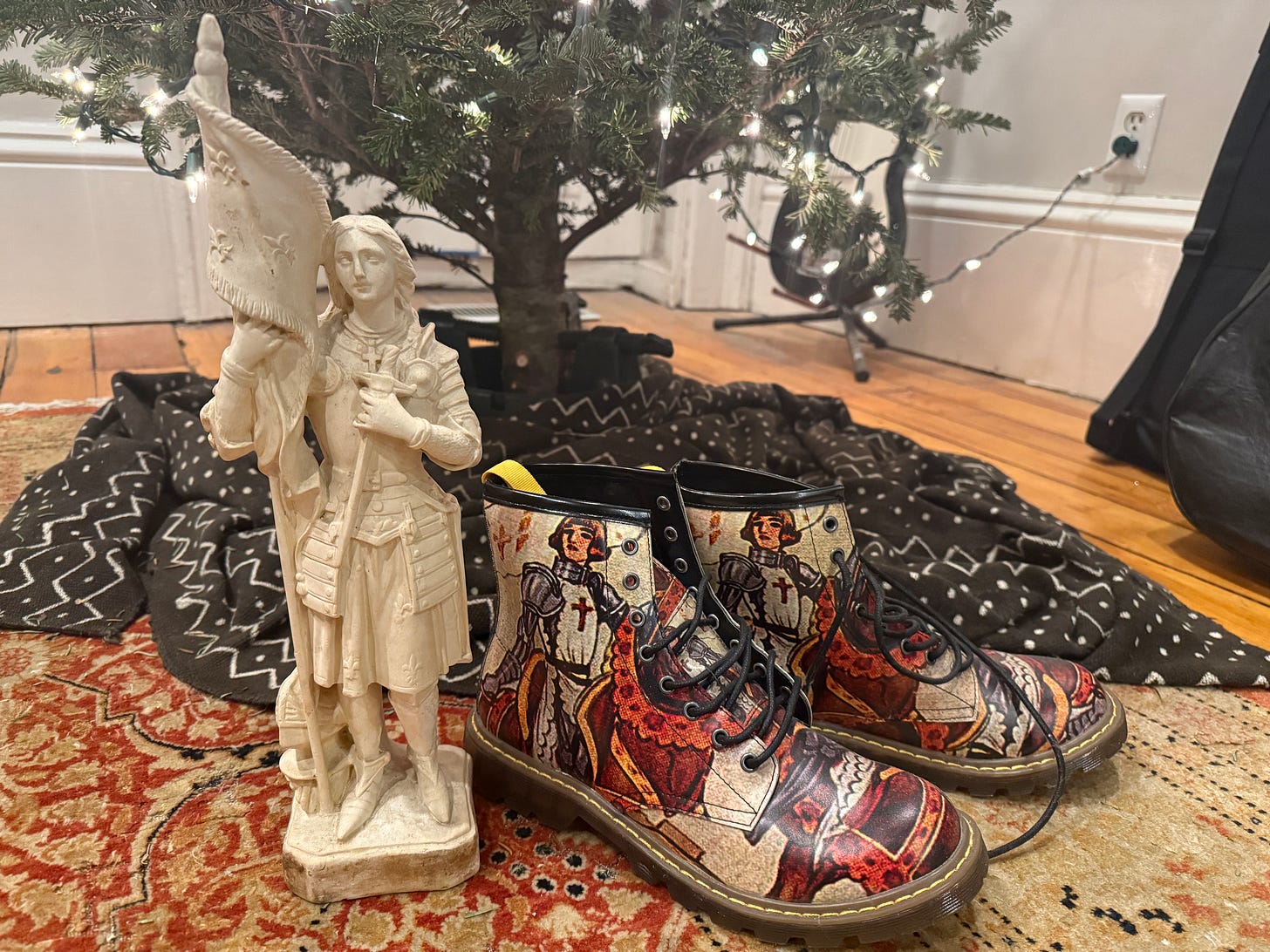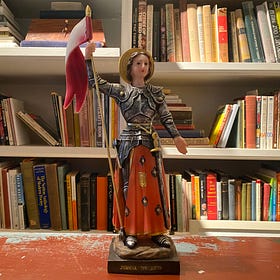The Wisdom of Joan of Arc
Courage as a Tailwind
"Today is Joan of Arc's birthday. As I am unable to post I am sending the gift of my daughter Jesse's meditation on our beloved young visionary soldier."
Good afternoon, everyone. I hope you had a restful weekend to begin the year.
Today is the birthday of Joan of Arc, and now is a time when we need especially to look towards her for courage.
Here is the post I wrote about her last year on this day:
As I enter my second year on Substack, I notice I am already drawn to highlight the same important dates - …
Subscribe to Jesse Paris Smith to continue reading
Visit the author’s Substack to subscribe and read more.




